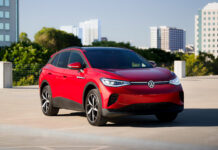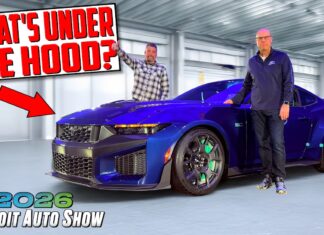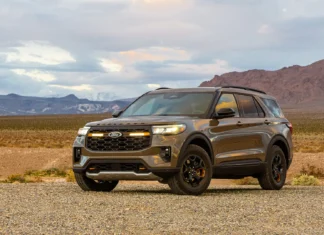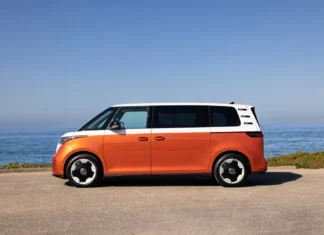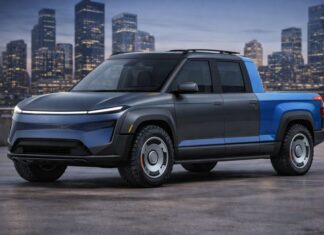Diesel has gotten a bad rap in recent years. Manufacturers – especially Volkswagen with the “Dieselgate” scandal – have been caught cheating on emissions testing, in a move that’s all but chilled the car-buying public’s interest in diesel-powered cars here in the United States. Despite the turbulent atmosphere currently surrounding diesel engines, some car companies are still aiming to put diesel engines in their new models. Take General Motors, for instance – they’ve put over 24,000 R&D hours into the EcoTec engine in the 2018 Chevy Cruze. But how far have diesels, as a whole, really come on in the past 15 years or so? To find out, we take a brand new Cruze turbodiesel to the track, where it squares off against a former diesel icon – Andre’s 2002 Volkswagen Golf TDI.
More power, more speed
As you’d well expect, the Cruze is more refined and packs more punch than the Volkswagen. Take power, for a start. The 2018 Chevy Cruze turbodiesel packs a 1.6-liter EcoTec unit pushing out 130 horsepower. The Volkswagen, by contract, has a 90 horsepower, 1.9-liter turbodiesel. Now, 40 more horsepower is a substantial difference, but the true night-and-day evolution comes with the torque figures. While the Golf TDI pushes out a respectable 155 lb-ft of torque, the 2018 Chevy Cruze diesel puts out 240 lb-ft.
Making 40 more horsepower and 85 lb-ft more torque in 15 years makes its difference on the track, but not as much as you might think. Despite the VW’s age, it still manages to keep a fairly close margin to the newer, albeit heavier Cruze. Thanks to its more powerful engine, the 2018 Chevy Cruze diesel also hits 60 from a stop in under 10 seconds at a mile above sea-level. That’s not scorching fast, but the Volkswagen struggles to make 60 at all before the end of the straight. It’s 0-60 time is close to the 13 second range.

Greater Refinement
One of the drawbacks to owning a diesel-powered car is that clattering diesel noise. But is that such a problem these days? As it turns out, the 1.6-liter EcoTec in the 2018 Chevy Cruze diesel is actually a fairly quiet unit. Up against the 2002 Volkswagen Golf TDI, the Cruze’s engine rings in at 64 decibels. The Golf, by comparison, is a bit noisier, at 70.7 decibels.
Even better, while the Golf does get up to 49 MPG on the highway (at least when it was new), the manual Cruze comes close. In fact, this is one of the few modern cars where the manual still beats the automatic in the MPG race. Equip a manual, and you can make up to 48 Highway MPG in the Cruze, versus 45 for the automatic. Not only that, but the Cruze is much cleaner than the Volkswagen, thanks to its use of DEF (Diesel Exhaust Fluid).
While the Cruze packs more equipment all around, as you’d expect, there are some panel caps throughout the cabin, weirdly. The Volkswagen, on the other hand, is built as you’d expect. This Teutonic hatchback’s interior is holding up well after 15+ years and 196,000 miles. Even after driving around the planet nearly eight times at the equator, the Golf’s interior still passes muster.
Bang for your buck
Back in 2002, the Volkswagen Golf GLS TDI was the cream of the crop in the diesel hatchback’s range. All said and done, the car’s price was $19,900. Adjusting for inflation, that’s around $27,000 today. The 2018 Chevy Cruze diesel rings in around the same price, actually – starting at $26,395 MSRP, before any incentives. Now, unlike the old Golf, you don’t get a choice in trim levels (gasoline Cruze models get a choice of L, LS, LT, and Premier), but you do get some options. If you spec your Cruze in Cajun Red Tintcoat or Kinetic Blue Metallic, that will cost you $395. The $1,125 leather package includes a four-way adjustable passenger seat as well as a heated, leather-wrapped steering wheel. Interestingly, you can also buy a $1,250 “Performance Brake Package”, in addition to several appearance options. Add up the total, and our Cruze rings in at $31,125.
What do you think of today’s diesels versus diesels of yesteryear? Let us know in the comments! Subscribe to The Fast Lane Car and TFLnow on YouTube for more news, views, and real-world, old vs. new diesel hatchback reviews.

